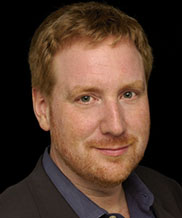Bridging AI Research and Education Practice to Drive Changes in the Ecosystem of Innovation
 Bruce McCandliss is a Professor in the Stanford Graduate School of Education and (by courtesy) Department of Psychology at Stanford University. He studies developmental cognitive neuroscience, with an emphasis of questions of how the neural substrates of several cognitive abilities change via learning and education. His laboratory employs several diverse techniques to investigate cognitive change across development and learning, including training studies in adults and children, longitudinal research in school-age children, and naturalistic school-based studies observational and intervention studies. In his talk, Bruce examines these points…
Bruce McCandliss is a Professor in the Stanford Graduate School of Education and (by courtesy) Department of Psychology at Stanford University. He studies developmental cognitive neuroscience, with an emphasis of questions of how the neural substrates of several cognitive abilities change via learning and education. His laboratory employs several diverse techniques to investigate cognitive change across development and learning, including training studies in adults and children, longitudinal research in school-age children, and naturalistic school-based studies observational and intervention studies. In his talk, Bruce examines these points…
1. Setting the stage of the eco-system for educational innovation: who are the stake-holders? What limits their engagement and innovation?
2. AI research plays out at multiple, interacting levels of complexity: i.e. neural systems (biological and artificial), the whole developing child, the school classroom and school district level.
3. Systems neuroscience may provide a key level of explanation for a learner’s trajectory through a learning environment.
4. Educational systems have increasing degrees of freedom for differentiated instruction and engagement.
5. AI, when combined with insights from the Learning Sciences, may provide decision relevant information to enhance children’s development during the early school years, enabling schools to become learning institutions that learn.